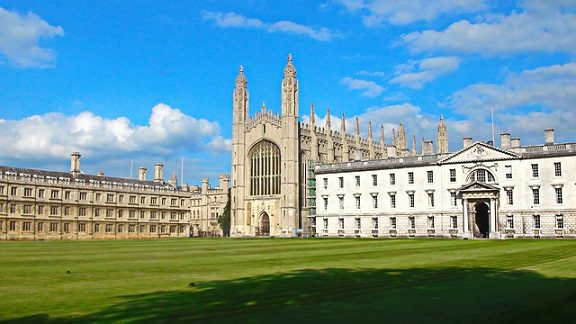
The Cambridge Program 2024
I have just returned from teaching the “Money & Responsibility” program we run at Clare College, which is part of Cambridge University.
We had one of the largest classes of students since the program started in 2009. Students came from all over the United States as well as Uzbekistan and Egypt. Regardless of the diverse backgrounds of the students, we endeavor to give each one of them a grounding in the basics of the mathematics of money, budgeting, credit cards and debt, investing, and the impact of taxation and inflation. None of these subjects seems to be taught in the school classroom. The objective of our course is to fill that gap and provide a solid understanding of the basics of what it takes to manage money responsibly.
Managing finance can be a heavy subject to learn. To offset that we include a broad range of speakers on other subjects which this year covered topics ranging from a History of 20th Century Cosmology “Big Bangs to Big Rips” to Artificial Intelligence. The latter talk was given by the Professor of Interactive Systems Engineering. Sir Laurie Bristow, the former UK ambassador to Russia, spoke on the topic of Russia and Ukraine. We also had lectures on evolution, the Global Burden of Disease, and how Romans managed risk.
The idea behind the course is to take students out of their comfort zone to a foreign shore, and a city deeply rooted in academia and renowned for pioneering technological advances. Cambridge is the European equivalent of Palo Alto!
It is gratifying to see the impact of the one-week course on the students and how they developed new perspectives influenced by a more global view. The participants came from all walks of life, but, regardless of how humble their origins may be, they were able to reflect on their comparative wealth. As an example, owning $10,000 of assets is the threshold to be counted among the wealthiest 50% of the world’s population. At $100,000 you are in the top 13%. But should everything be measured in money? We also examined how every society should value the importance of safety and security, personal freedom, the rule of law, education, access to health, governance, and living conditions.
Achieving asset levels of $100,000 probably seemed unattainable to some participants, but we sought to provide them with the tools to accomplish such goals. The key take-away for a young person is that they have time on their side to allow the laws of compounding to work their magic. Of course, compounding requires discipline, a budget that emphasizes regular and consistent savings, and the fortitude to ignore the noise of the media and prognosticators whose advice is often financially destructive.
A book I heartily recommend to the students is “The Psychology of Money” by Morgan Housel. This excellent read emphasizes the disposition and behavior of a successful investor. It also makes a key distinction – being wealthy is not the same as being rich!
Nick Hoffman
